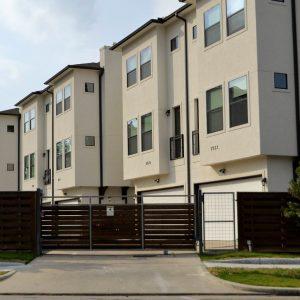Table of Contents
Whether we like it or not, as our homes get older, more and more thing can go wrong with them. That’s why we perform maintenance even if nothing seems to be the matter. The alternative is to wait for something to fail, and then pay not only to repair the thing that failed, but also the additional damage it caused. One of the most common types of home inspections is the four-point inspection.
If you’re interested in having one done on your home, but you’re unsure what it actually entails, don’t fret. We consulted home inspection professionals from San Diego’s premier provider – The Inspectors Company. Here’s what they had to say about it.
Why do people get a home inspection?
Well, in certain states, insurance companies take issue with older homes, as they are much more likely to have issues. That means that they might refuse to insure such a home without a comprehensive inspection to assess the state of the house.
This is their way of protecting their investment so if you want to buy such a house, or if you simply want to ensure your property, you may need to play by their rules and get a home inspection.
Why home inspection is a good idea
If you’re not compelled by your insurance company to perform this kind of inspection, you may save a bit of money. But, consider the alternative. For a small fee, you can actually have a detailed analysis of your home’s current state.
Four-point inspection is heavily geared towards older homes, which means that it will check all of the known critical points that tend to fail in older homes. Wouldn’t you rather know that there is an issue lurking in your home, with the potential to cause a lot of damage? I certainly would.
Here are the four points home inspection that an inspector is going to look at.
Your home’s electrical grid
This is probably going to be the first stop for an inspector – the electrical installations of your home. After all, electrical fires are some of the potentially most devastating home disasters.
Keep in mind that older homes needed to uphold certain safety regulations – from the time of their building. Chances are that these regulations have changed in your town. That means that it is very likely that the inspector will recommend certain upgrades.
However, the most important thing the inspector can ascertain in your home’s electrical grid is the state of the electrical components. The standard wear and tear can cause a lot of problems, so ensuring all of the components are up to code is the primary function of this check.
Your HVAC system
The centralized HVAC system is the staple of most American homes built in the last half-century. The single central system build directly into the house’s construction saves a lot of money while building, as well as keeps the electrical and heating bills lower.
That being said, there is one major drawback of having a central HVAC system in your home – accessibility. The furnace and the AC unit may be relatively easy to get to, but the vents tend to be out of sight (for aesthetics), which may pose some difficulty in checking their state without professional help. That’s where a four-point inspection comes in. A skilled and qualified technician can check the health of the whole system thanks to years of specialized knowledge and some special equipment.
Your plumbing
Just like the ducts of your HVAC system, the pipes that carry water around your house tend to be out of sight, safely tucked away in your walls and under your floors. That can make it difficult to spot the problem early on before it causes major damage.
Luckily, if you decide to have an inspector take a look at your home, they will check all of the plumbing in your home and assess the state of your system, recommending any changes or repairs that may be needed to protect you from damage.
The roof
To top off the inspection, a technician will take a look at your roof. As the most exposed part of your home, your roof needs to weather anything from the scorching sun, blistering cold, heavy rain, and anything in between, all the while perfectly insulating your home from the elements.
Final words
Knowing where the potential problems come from helps us prepare for them better. So why not offer your home the same luxury of knowing just where the potential sore points are and what to keep an eye on.





